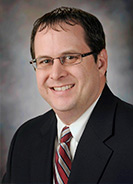When cancer attacks adolescents and young adults (AYA), the challenges it presents are different than for children or adults. The National Cancer Institute defines this “AYA” cohort as between the ages of 15 and 39. Physically and hormonally, many in this age group are still developing. Psychologically and socially, they may be figuring things out or already starting a career or other life plans.
At age 19, Jillian Williams was diagnosed with Ewing’s sarcoma, a rare pediatric bone cancer. She was only in her second semester of college, living away from home for the first time and full of ambition as a volleyball player for Texas Lutheran College in Seguin. Perky and popular since childhood, she had to leave school and focus on recovery.
Jillian's Treatment Journey
Williams and her family chose University Health’s Adolescent and Young Adult (AYA) cancer treatment program for chemotherapy treatments before and after her surgery. Though Williams’ cancer was classified as pediatric, her age qualified her for treatment within the AYA program.
The oncologist who diagnosed her cancer recommended treatment was Dr. Aaron Sugalski, Medical Director of the University Health Pediatric Blood and Cancer Center.
“I fell in love with him and his staff,” Williams said recently. “We could tell it was home for us.”
Because Ewing sarcoma patients often experience relapses, Williams opted for a “cool” procedure, as she calls it. In 2016, doctors amputated her leg above the knee and attached her foot to her knee to function as a joint for a prosthetic leg. Over a period of 10 months, Williams underwent 26 rounds of chemotherapy and worked with pediatric psychologist Leeanne Embrey, Ph.D.
A multidisciplinary team of doctors and social workers combine to assess AYA patients’ needs and concerns such as genetic and biological issues, which often include preserving fertility and minimizing long-term side effects.
“The thing about University is they see quite a few patients, but the care was very personal,” Williams said. “I feel like a gained a new family. They literally fought for my life every day. Their community was behind me.”
Williams had mixed feelings about her chemotherapy coming to an end, though she continues to return for follow up with her physicians, psychologist and case manager.
“It sounds weird,” she said, “but it was hard to leave because I went from seeing these people three or more days a week to not at all. Their one-to-one work was amazing.”
Winning Olympic Gold
Once Williams was cancer-free, she transferred to the University of Central Oklahoma in Edmund, Oklahoma, which is the training center for the U.S.A. Women’s National Sitting Volleyball Team.
At the Tokyo 2020 Paralympics, Williams represented the United States as part of the U.S. Women's Sitting National Team. Williams, who was a middle blocker, and her team won gold.
Representing the United States in global play with the U.S.A. logo over her heart is one of the biggest joys of her life – one she would not have had without cancer.
“It makes me who I am today,” she said.
AYA Cancer Care at University Health
University Health is one of only 11 sites nationwide that partners with the Pediatric Oncology Experimental Therapeutics Investigators' Consortium, or POETIC. It promotes early clinical development of promising therapies for children and young adults with cancer and related disorders.
For more than 30 years, our pediatric hematology and oncology physicians have provided the very best in comprehensive care, education and research for the children of San Antonio and South Texas





